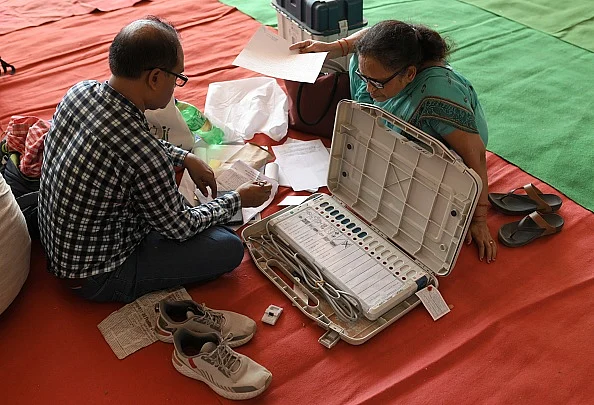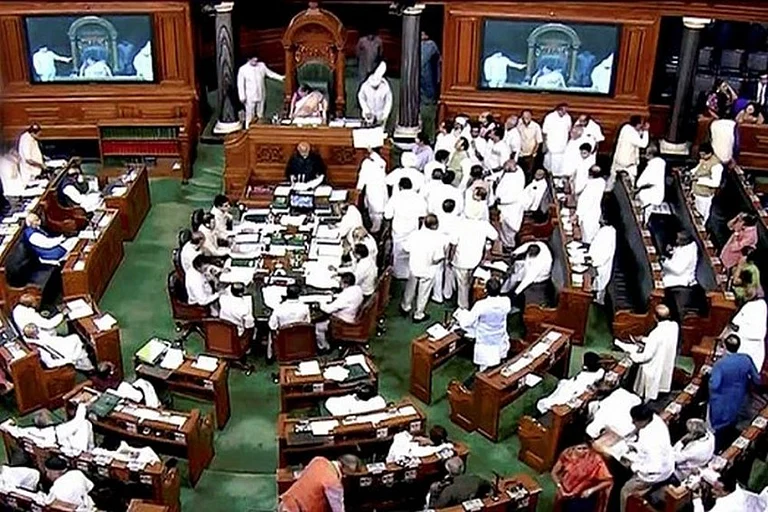As the 43-days long Lok Sabha elections get over on June 1, the focus now has shifted from campaign trail to the exit polls. After every election, the survey agencies and television news channels come up with the exit polls that actually become the centrepiece of political discussions unless the results are out. But the question over its accuracy never leaves it.
In the last few Lok Sabha elections, the prediction of the exit polls though couldn’t give the proper numbers, they rightly identified the winners. However, in 2004 when there was speculation of a BJP wave depending on their India Shining campaign, the exit polls went blatantly wrong. In 2009, they gave majority to UPA but couldn’t predict the numbers. The same happened even in 2014 and 2019. BJP outperformed the expectations and the numbers given by the exit polls.
This time, even before the exit polls have come out, it has evoked political controversies. AICC communication-in-charge Pawan Khera on the social media platform X has clearly said that the Congress party leaders wouldn’t join the exit polls as they don’t want to participate in boosting TRPs. “Our statement on the reason for not participating in #ExitPolls. Voters have cast their votes and their verdict has been secured. The results will be out on 4th June. Prior to that, we do not see any reason to indulge in speculation and slugfest for TRP,” reads Khera’s statement.
Taking dig at Khera, Union Home Minister Amit Shah has said that the Congress is in a denial mode. “It’s nothing new that the Congress will tomorrow boycott discussions on the exit poll. The Congress is in denial mode for quite some time. They kept claiming throughout the election that they are getting a majority. Now they also know that in the exit poll, they are going to be badly defeated. That is why they are dismissing the whole exercise of exit polls,” Shah noted.
Against this backdrop, it is significant to realise how these poll surveys are done. What are the factors that determine the results of the exit polls. How far is it from the reality and why?
The surveys are conducted after the polling through different means. “Some employ face-to-face interviews, while others use telephonic surveys, SMS, and online polls through apps or social media,” says Afroz Alam, a political scientist based in Hyderabad. It was in 1957 during the second Loksabha elections that Indian Institute of Public Opinion conducted a polling to understand the mood of the electorates.
During this period of time, 20,000-30,000 sample size was considered large enough, writes Sanjay Kumar in one of his articles. It was in 1996 Lok Sabha elections Centre for the Study of Developing Societies (CSDS) conducted a poll with a sample of 17,604 but predicted the results quite accurately.
However, according to Alam, “The reliability of exit polls depends on the sample size, the methodology for drawing these samples, and the proper execution of survey tools by a well-informed data collection team. Larger and more representative samples typically yield more reliable results. High response rates also contribute to the reliability of polls.” But Kumar thinks the more important component is the proportionate representation of different population groups in the sample.
This nonetheless is not the case if the voter behaviour is taken into consideration. The accuracy of exit polls depends on the intensity of revelation. Over the years, voters have become less likely to disclose their voting preferences due to the increasing number of data-collecting agencies and the politically sensitive environment, adds Alam.
Against this backdrop, will this time the exit polls be able to predict the polls accurately? Alam responds, “Nowadays, exit polls in India are often failing due to the political biases of the agencies conducting them. Frequently, data is released without actual fieldwork, tailored to fit the narratives of the sponsoring political parties. In other words, many exit polls are sponsored by political parties to gain political advantage, undermining their credibility and reliability.”




























